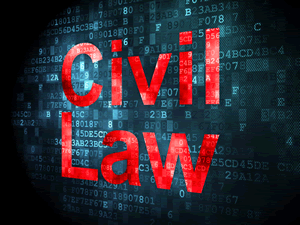Falsely accused of stealing is this slander?
Recently on our legal forum a user asked, “I live in a very small West Texas town. Someone in the town falsely accused me of stealing. Unfortunately, this lie has spread and has made it difficult for me to find employment. Do I have any legal options?”
Overview of defamation
What you have described, assuming the statement is not true and meets other requirements, is considered defamation, which can be a type of personal injury. To be considered defamation, however, the action or words must meet certain requirements.
- The statement was written (libel) or spoken (slander)
Given that spoken information does not last as long as written information, slander is considered less harmful than libel.
- The statement was unprivileged
Privileged information includes statements made in court or in a deposition. It can also include statements made by lawmakers made in a legislative session. Under each of these conditions the state has determined that the need for an individual to have protection while providing information to the court is greater than the threat of a defamatory statement.
- The statement was false
If someone publishes a statement that is true, no matter how harmful, it is not considered defamation. Truthfulness is always a defense against a defamation charge. For example, if you stole something and someone saw you and told ten people, you cannot sue them for defamation if you did steal the items in question -even if the statements made it impossible for you to find future employment.
- The statement was “published” or made to a third-party
Published does not mean that the information has to be printed. Published information includes information which has been seen, heard, or read. Third-party also refers to another person hearing or seeing the information other than the person making the statement.
- The statement caused injury or loss to the plaintiff. Loss may include loss of reputation and monetary loss. In some jurisdiction, injury may also include emotional distress or mental anguish.
To win in court all personal injury plaintiffs must show loss or injury. If you cannot prove that the defamatory statement caused you loss, you do not have a personal injury claim.
Keep in mind, however, that someone offering their opinion is not considered defamatory. Celebrities and other public figures also have limited protections. In fact, public figures must prove all of the above to prove defamation but also that the defendant published the information or statement with malice.
Filing a personal injury claim for slander
Now you asked what legal action you can take against the offender. In America individuals have the right to free speech, but this right must also be balanced against other people’s rights to have their reputation protected from lies or defamatory statements.
So what do you do if after reading all of this information you still believe you have a strong personal injury claim against someone for defamation?
The first step is to consult with a personal injury lawyer. Personal injury lawyers work on a contingency basis. Unfortunately, if someone has made defamatory statements but the chance of a high recovery is limited, you may have difficulty getting a personal injury lawyer to take your case.
Without more information about your case, however, it’s hard to say for sure if a lawyer will take your case.
Bottom Line:
Given the rise of social media it’s easier than ever to post something defamatory and spread it to thousands of people in an instant. Not only do we need to teach our kids to never post something untrue about another person, as adults we also have to be careful about how we use social media.
Remember, if you post something that is not true, you publish it online or verbalize it to a third-party, and your statements cause injury or loss to another person, you could find yourself the defendant in a defamation lawsuit.
Related Pages
Latest Question
Guardianship for elder care
If you decide you should be the guardian of your parent and the court agrees, you will be responsible for a variety of decisions.
Category: Estate Law



